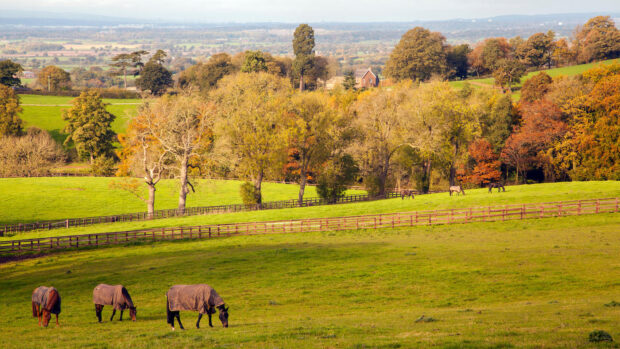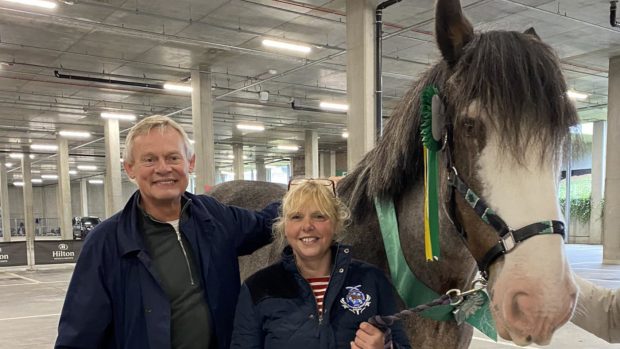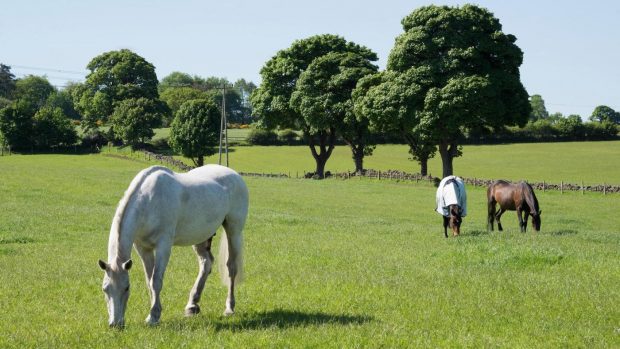Owners of horses who have been affected by grass sickness are being urged to take part in a “crucial” new project to help protect equines from the devastating disease.
A new “biobank” has been formed, containing samples from horses and soil samples, that will play a role in future grass sickness research.
The project has been created by livestock health and welfare research charity Moredun Foundation and the Equine Grass Sickness Fund, with support from the British Horse Society (BHS).
“A lack of suitable samples from [equine grass sickness] cases has hindered research progress into the causal agents involved, despite the disease being recognised for over 100 years,” said a joint statement from those involved in the project.
“But horse owners and vets can now play a crucial role in this project by submitting samples from affected horses and field controls, along with soil samples, to the new biobank.
“In future, scientists researching [the disease] will be able to apply to use the anonymised samples in projects aiming to establish the causal agents and break new ground against the disease.”
Equine grass sickness has an 80% fatality rate. It can occur at any time of year, but is found to be most prevalent between April and June.
“By donating samples and completing case questionnaires, horse owners and vets can provide valuable information helping researchers understand the risk factors and protect future generations of horses and their owners from the terrible effects of this disease,” added the statement.
Article continues below…
You might also be interested in:

Hopes for grass sickness research with launch of new project
The three-year project will involve a fellow setting up a national database and sample biobank with the assistance from vets

‘We want to give people hope’: owners of grass sickness survivors launch awareness week
The week will provide facts, scientific information and advice about the disease with input from veterinary experts, feed companies and

Subscribe to Horse & Hound magazine today – and enjoy unlimited website access all year round
Dr Beth Wells, principal scientist and knowledge exchange specialist at Moredun, said the charity is delighted to be working in partnership with the Equine Grass Sickness Fund to develop the national biobank.
“This is essential for research to progress and the samples will be available to all researchers,” said Dr Wells, thanking the BHS for its “generous funding”.
“We are very grateful to all the horse owners and vets who have already provided samples, at such a difficult time for them, and we urge everyone to think about supporting us to help find the cause of this devastating disease.”
For more information, visit the Equine Grass Sickness Fund website
Horse & Hound magazine, out every Thursday, is packed with all the latest news and reports, as well as interviews, specials, nostalgia, vet and training advice. Find how you can enjoy the magazine delivered to your door every week, plus options to upgrade to access our H&H Plus online service which brings you breaking news as it happens as well as other benefits.




